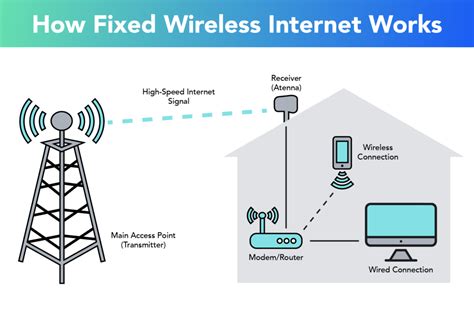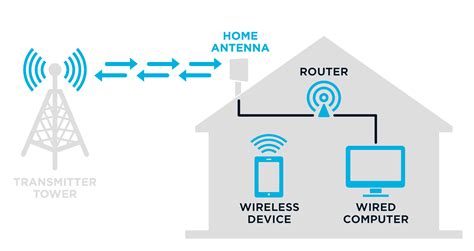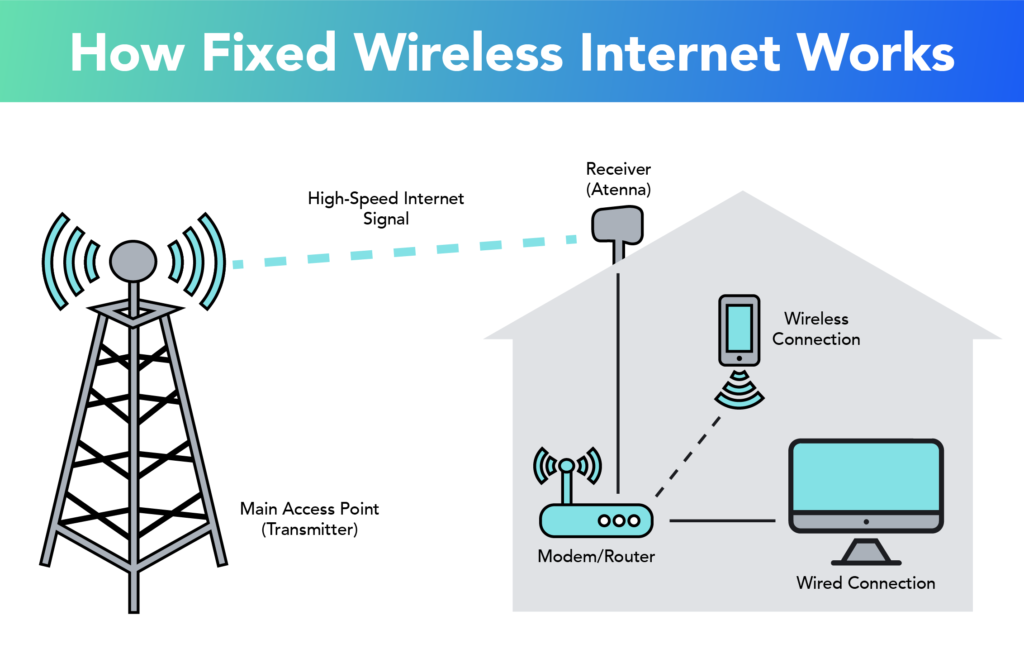Fixed Wireless Internet Explained

As the world becomes increasingly digital, the demand for reliable and high-speed internet connectivity has never been more pressing. Traditional wired internet solutions, such as fiber-optic cables, can be expensive and time-consuming to install, especially in rural or hard-to-reach areas. This is where fixed wireless internet comes into play, offering a viable alternative for individuals and businesses seeking fast and dependable internet access. In this article, we will delve into the intricacies of fixed wireless internet, exploring its underlying technology, benefits, and applications.
What is Fixed Wireless Internet?

Fixed wireless internet, also known as fixed wireless broadband, is a type of internet connectivity that uses wireless signals to transmit data between a fixed location, such as a home or office, and a nearby wireless tower or base station. This technology leverages microwave or millimeter wave frequencies to establish a point-to-point or point-to-multipoint connection, providing users with a dedicated and stable internet link. Unlike mobile wireless internet, which is designed for devices on the move, fixed wireless internet is optimized for stationary locations, offering a more reliable and high-speed connection.
How Does Fixed Wireless Internet Work?
The process of establishing a fixed wireless internet connection involves several key components. First, a wireless tower or base station is installed in a strategic location, such as a hilltop or tall building, to provide an unobstructed line of sight to the surrounding area. Next, a small antenna or receiver is installed at the user’s location, which communicates with the wireless tower to establish a connection. The antenna is typically mounted on a roof or exterior wall, and is aligned with the wireless tower to ensure optimal signal strength. Once the connection is established, data is transmitted between the user’s location and the wireless tower using microwave or millimeter wave frequencies, allowing for fast and reliable internet access.
| Frequency Band | Range | Speed |
|---|---|---|
| 2.4 GHz | Up to 10 miles | Up to 100 Mbps |
| 5 GHz | Up to 5 miles | Up to 1 Gbps |
| 24 GHz | Up to 1 mile | Up to 10 Gbps |

Benefits of Fixed Wireless Internet

Fixed wireless internet offers several benefits over traditional wired internet solutions. One of the primary advantages is the speed and ease of installation, as wireless signals can be transmitted over long distances without the need for physical cables. This makes fixed wireless internet an attractive option for rural or hard-to-reach areas, where traditional wired infrastructure may be limited or non-existent. Additionally, fixed wireless internet can provide a more reliable connection than traditional wired solutions, as it is less susceptible to outages and interference caused by physical damage to cables.
Applications of Fixed Wireless Internet
Fixed wireless internet has a wide range of applications, from residential to commercial and industrial settings. For individuals, fixed wireless internet can provide a fast and reliable connection for streaming, online gaming, and other bandwidth-intensive activities. For businesses, fixed wireless internet can offer a cost-effective and efficient solution for connecting multiple locations, such as branch offices or warehouses. Additionally, fixed wireless internet can be used to provide backup connectivity in case of primary internet outages, ensuring minimal disruption to critical operations.
Key Points
- Fixed wireless internet uses wireless signals to transmit data between a fixed location and a nearby wireless tower or base station.
- The technology leverages microwave or millimeter wave frequencies to establish a point-to-point or point-to-multipoint connection.
- Fixed wireless internet offers a more reliable and high-speed connection than traditional wired solutions, with speeds of up to 10 Gbps.
- The choice of frequency band depends on various factors, including distance, interference, and required speed and reliability.
- Fixed wireless internet has a wide range of applications, from residential to commercial and industrial settings.
Technical Specifications and Considerations
When evaluating fixed wireless internet solutions, there are several technical specifications and considerations to keep in mind. These include the frequency band, range, and speed of the connection, as well as the type and quality of the antenna and receiver equipment. Additionally, factors such as line of sight, interference, and weather conditions can impact the performance and reliability of the connection. It’s essential to work with a qualified installer or service provider to ensure that the fixed wireless internet solution is properly designed and installed to meet the specific needs and requirements of the user.
Security Considerations
As with any wireless technology, security is a critical consideration for fixed wireless internet. To ensure the integrity and confidentiality of data transmitted over the connection, it’s essential to implement robust security measures, such as encryption, firewalls, and access controls. Additionally, regular software updates and maintenance are necessary to prevent vulnerabilities and ensure the continued reliability and security of the connection.
What is the typical range of fixed wireless internet?
+The typical range of fixed wireless internet can vary depending on the frequency band and other factors, but can extend up to 10 miles or more.
Is fixed wireless internet secure?
+Yes, fixed wireless internet can be secure when properly designed and installed with robust security measures, such as encryption and firewalls.
Can fixed wireless internet be used for backup connectivity?
+Yes, fixed wireless internet can be used as a backup connectivity solution in case of primary internet outages, ensuring minimal disruption to critical operations.
In conclusion, fixed wireless internet offers a reliable and high-speed connectivity solution for individuals and businesses seeking fast and dependable internet access. With its ability to transmit data over long distances without the need for physical cables, fixed wireless internet is an attractive option for rural or hard-to-reach areas, as well as for applications where traditional wired infrastructure may be limited or non-existent. By understanding the technical specifications and considerations of fixed wireless internet, users can make informed decisions about their connectivity needs and ensure a fast, reliable, and secure connection.